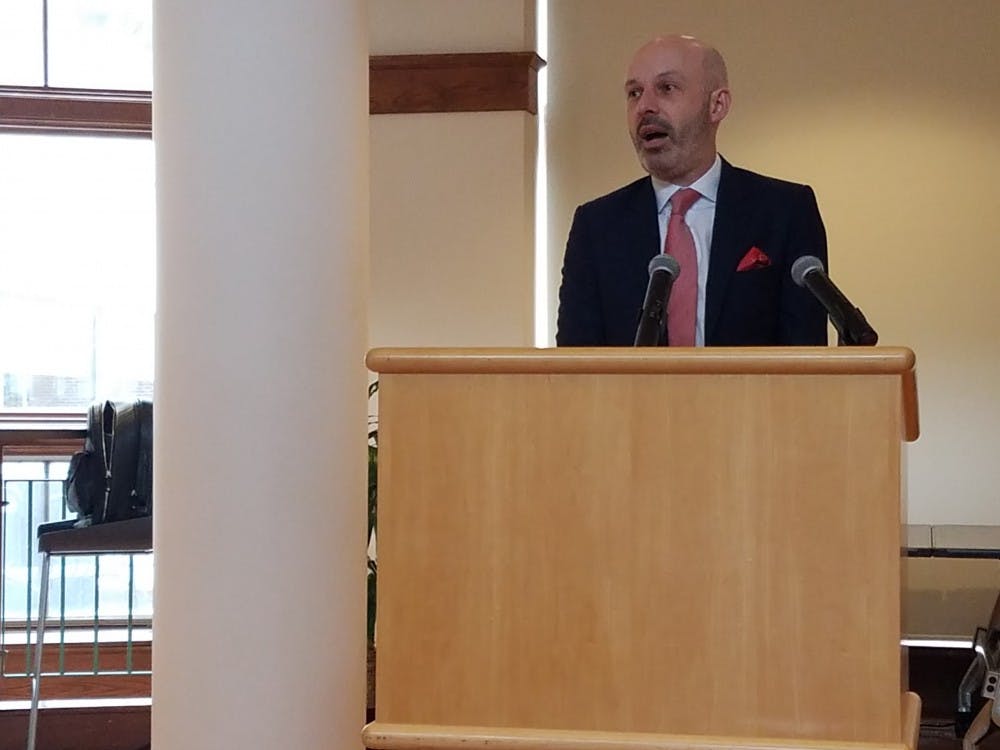Students and faculty crowded into the rotunda at the UNC School of Law in Van Hecke-Wettach Hall on Wednesday to listen to lawyer and Supreme Court practitioner Tom Goldstein give his thoughts on the direction of the Supreme Court.
Goldstein spoke as the distinguished speaker for this year’s Murphy Lecture Series, an annual lecture hosted by the UNC School of Law dedicated to drawing prominent political and legal figures to campus. Goldstein has been named one of the Nation’s 40 Most Influential Lawyers of the Decade by the National Law Journal in 2010 and has been previously named by GQ as one of the 50 most powerful people in Washington, D.C.
Dean of the UNC School of Law Martin Brinkley singled out Goldstein’s commitment to diversity to be among his greatest characteristics.
“Perhaps more than any other advocate in practice, Tom represents the complete spectrum of litigates before the court,” Brinkley said. “His work is not associated with any particular perspective or ideology.”
Goldstein is also the publisher and co-founder of SCOTUSblog, a website devoted to covering the Supreme Court. SCOTUSblog is the only blog to ever receive the Peabody Award, an award designed to reward outstanding work in electronic media.
Goldstein spoke at length about the potential strategy of court-packing for managing the Supreme Court in today’s political climate. Starting in 1937 with President Franklin D. Roosevelt, court-packing is a plan to increase or “pack” the number of Supreme Court justices to change the court’s political leanings. While there is no modern precedent for court-packing, recent events in the Supreme Court, such as the refusal to name a judge after the death of Justice Antonin Scalia, have opened the possibility for it being used in the future. To Goldstein, the thought of court-packing has dangerous implications.
“If you were to adopt a plan that says we are going to increase the number of seats, you are going to get into a tit-for-tat when you do have politics get kind of out of line with divided government,” Goldstein said.
Considering the upcoming presidential election, the balance of the Supreme Court becomes even more important. Some of the leading candidates for next year's Democratic nomination, such as senators Kamala Harris, Elizabeth Warren and Kirsten Gillibrand, have expressed openness to the idea of court-packing. As the topic gains momentum, Goldstein warned about the unintended consequences that may occur for the Democratic party.
“If you can point to your opponent and say, ‘They’re trying to pack the court,’ it is a very easy bumper sticker message,” Goldstein said. “And so you have a situation in which you are inviting, simply by making this a major issue in democratic politics, you are inviting kind of the counter-revolution.”



